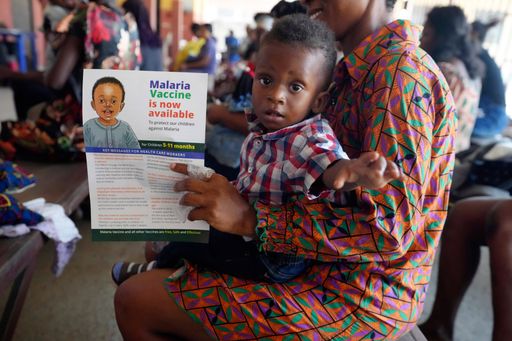Grace Mwende's children sleep under insecticide-treated nets every night, yet malaria still manages to find them.
It's a recurring nightmare not just for this Kenyan mother of three in Kilifi County, but for millions of families across malaria-endemic Africa.
The most worrisome aspect of this persistent scourge is behavioural adaptation by disease-spreading Anopheles mosquitoes.
These primarily nocturnal vectors no longer wait until dusk to strike. They also bite during the day when children are playing indoors, beyond the protection of bed nets.
A breakthrough technology endorsed by the World Health Organisation (WHO) now promises to ease the worries of mothers like Grace.
Spatial emanators, the generic term for devices that continuously release vector-repelling chemicals into indoor air, potentially offer round-the-clock protection from mosquito bites.
"If this can keep mosquitoes at bay when we are not under nets, it will be a game-changer," Mwende tells TRT Afrika. "Malaria steals our children's health and the money that goes into hospital visits. We need every weapon we can get."
Evolving threat
Malaria kills nearly 600,000 people annually in Africa, with children under five accounting for the highest fatalities.
While conventional prevention methods such as using bed nets and spraying repellents indoors have saved millions of lives, mosquitoes are fighting back.
They have developed resistance to typical insecticides and shifted their feeding patterns, biting earlier in the evening or during daylight hours when people are moving about in their homes.
Spatial emanators or repellents address this protection gap. These wall-mounted devices gradually disperse chemicals such as transfluthrin that repel, disorient, and kill mosquitoes.
Unlike bed nets that protect only those sleeping beneath them, emanators shield entire indoor spaces continuously.
"We have seen how nets save lives, but mosquitoes adapt," says Dr Samuel Bangura, a public health specialist at Freetown in Sierra Leone, where malaria is an unwanted guest that refuses to go. "If emanators can protect families even when they are cooking, studying or working indoors, we could see a real drop in cases."
Encouraging trials
WHO has prequalified two spatial emanator products – Mosquito Shield, which lasts a month, and Guardian, effective for a year.
This official endorsement clears the path for governments and aid organisations to begin large-scale distribution.
Research funded by Unitaid, a global organisation founded in 2006 to help improve access to vital health products for HIV/AIDS, tuberculosis and malaria in low and middle-income countries, has already demonstrated the technology's promise.
Trials have shown that spatial repellents reduce malaria transmission by approximately 30% when used in combination with bed nets.
"This is the first new vector-control tool in decades," says Dr Philippe Duneton of Unitaid. "We must ensure it reaches those most at risk."

Research is underway to find answers to some critical questions about range and long-term efficacy.
For one, scientists need to determine whether spatial emanators are effective without bed nets and whether they can protect people in outdoor settings or refugee camps.
Another dynamic factor is the possibility that mosquitoes may eventually develop resistance to these chemicals.
Wide-spectrum tech
Early trials in Peru demonstrated that spatial repellents were effective in reducing dengue infections. Another study in Southeast Asia is currently under review.
Success in these trials could position spatial emanators as a multi-disease defence system for tropical regions worldwide, say experts.
For African families living under the constant threat of mosquito-borne diseases, spatial emanators represent more than scientific advancement. They offer the possibility of healthier children, reduced medical expenses and fewer missed school days.
Mwende speaks for millions of mothers across the continent when she considers what this technology could mean for her family.
If this works," she says, "it will be like a shield over our homes."



















